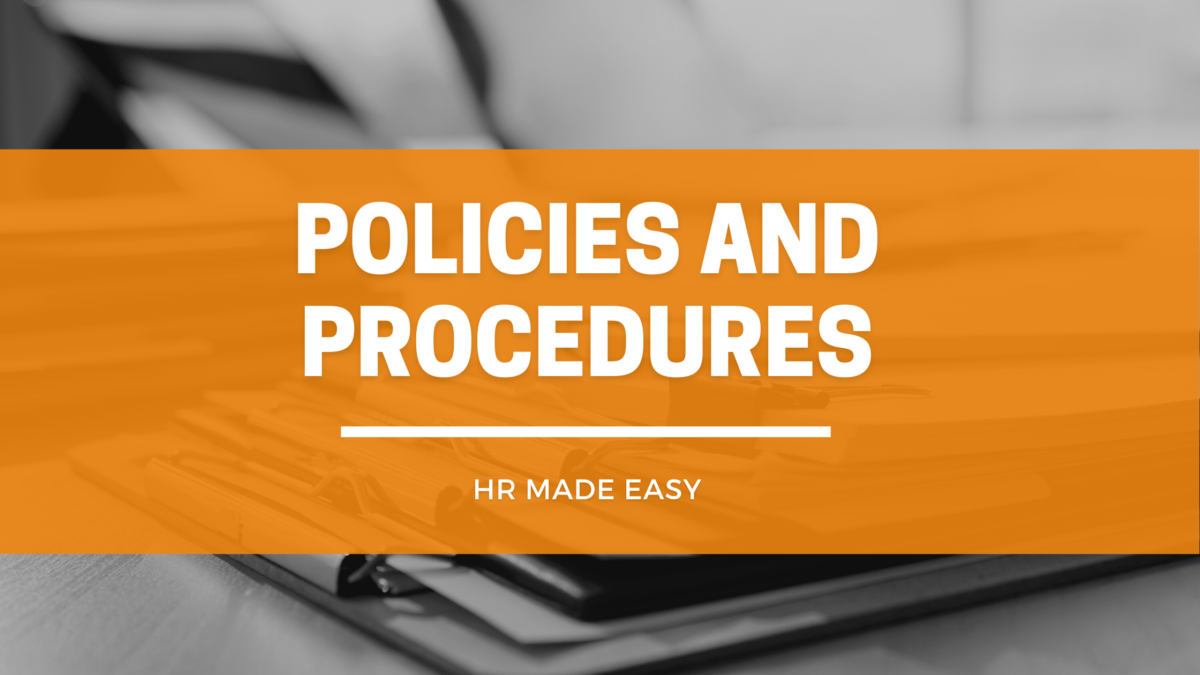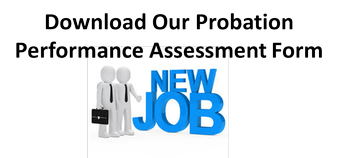Pension Obligations of Irish Employers
No matter how big or how small your company may be – or whether your employees are part-time, seasonal or fixed-term - every Irish employer is obliged to enter into a contract with a PRSA provider and to provide access to at least one standard PRSA for all ‘excluded employees’.
What are ‘excluded employees’? Employees are considered to be ‘excluded employees’ if:- their employer does not offer a pension scheme, or
- they are included in a pension scheme for death-in-service benefits only, or
- they are not eligible to join the company’s pension scheme or will not become eligible to join the pension scheme within six months from the date they began working there, or
- they are included in a pension scheme that does not permit the payment of additional voluntary contributions (AVCs).

Even if there is only one ‘excluded employee’, an employer must:
Even if there is only one ‘excluded employee’, an employer must:
- enter into a contract with a PRSA provider (there is no charge for doing this)
- provide employees with access to a Standard PRSA
- allow reasonable paid leave of absence, subject to work requirements, so that excluded employees can set up a Standard PRSA
- make deductions from payroll if required
- advise employees in writing (normally on their payslip) at least once a month of their total contribution, including employer’s contribution, if any.
- You’re not obliged to give any advice to employees in relation to PRSAs, but you must allow your PRSA provider or intermediary reasonable access to your employees to brief them on PRSAs.
- You don’t have to contribute to PRSAs on behalf of your employees, but if you decide to do so, your contributions must be paid to the PRSA provider within 21 days of the end of the month in which the employer contributions are due. And please note that you cannot make any deductions from this payment.
- You are not responsible for the investment performance of PRSAs
IFG have many years of experience of providing Pension Scheme Design & Risk Advisory services to Irish companies. They would be delighted to answer any and all of your pension queries if you would like to find out more www.ifg.ie .






 Force Majeure Leave is less commonly discussed. The purpose of Force Majeure Leave is to provide limited, paid leave to enable an employee to deal with family emergencies resulting from injury or illness of a close family member. Force Majeure Leave applies where the immediate presence of the employee is urgent and indispensable (essential).
A close family member is defined as one of the following:
Force Majeure Leave is less commonly discussed. The purpose of Force Majeure Leave is to provide limited, paid leave to enable an employee to deal with family emergencies resulting from injury or illness of a close family member. Force Majeure Leave applies where the immediate presence of the employee is urgent and indispensable (essential).
A close family member is defined as one of the following:
 By its nature, an employee will not usually be able to give notice of the need to take Force Majeure Leave. The employee should, however, inform the employer (in writing) of reasons for taking the leave as soon as is reasonable practicable. The employee should provide details regarding the need for the leave and should confirm who the leave was taken in respect of.
Employers are obliged to keep a record of Force Majeure Leave taken by employees.
Employees will be entitled to:
- up to 3 days paid Force Majeure Leave in any consecutive 12 month period; or
- up to 5 days in a 36 consecutive month period.
Absence for part of a day is usually counted as a full day of Force Majeure Leave. Employees are entitled to receive pay for this type of leave. Employers can grant employees more than the number of days outlined above; however, they are not obliged to do so.
Employees are protected against Unfair Dismissal for taking Force Majeure Leave or for proposing to take it.
Death is not covered under Force Majeure Leave – Leave taken when a death occurs falls under Compassionate Leave and this tends to depend on employee contracts as well as custom and practice within the workplace.
By its nature, an employee will not usually be able to give notice of the need to take Force Majeure Leave. The employee should, however, inform the employer (in writing) of reasons for taking the leave as soon as is reasonable practicable. The employee should provide details regarding the need for the leave and should confirm who the leave was taken in respect of.
Employers are obliged to keep a record of Force Majeure Leave taken by employees.
Employees will be entitled to:
- up to 3 days paid Force Majeure Leave in any consecutive 12 month period; or
- up to 5 days in a 36 consecutive month period.
Absence for part of a day is usually counted as a full day of Force Majeure Leave. Employees are entitled to receive pay for this type of leave. Employers can grant employees more than the number of days outlined above; however, they are not obliged to do so.
Employees are protected against Unfair Dismissal for taking Force Majeure Leave or for proposing to take it.
Death is not covered under Force Majeure Leave – Leave taken when a death occurs falls under Compassionate Leave and this tends to depend on employee contracts as well as custom and practice within the workplace. 

 Since 2001 The HR Company, B2E Ltd. has been successfully providing a cost-effective HR and advice support service(s) for small to medium sized businesses (SMEs) across Ireland. The HR Company also assists several large corporations and multinationals with their HR operations. With so many pieces of employment legislation in place in Ireland it is a challenge for companies to ensure that they are fully compliant on all counts. The HR Company is an Irish-owned company headed up by Philip Carney, former head of HR for Microsoft’s European Operations Centre, and Angela O’Grady, former Staffing and Recruiting Manager. A team of 20 HR specialists provide peace of mind for Employers by guiding them on all aspects of Irish Employment Law.
The HR Company provides a very affordable 24/7 protection service to those who wish to offload the burdens and risk associated with HR activities. Whether it relates
to disciplinary procedures, annual leave, redundancy or anything in between; a dedicated account manager is at the end of a phone to guide Employers and help insulate companies whenever a query about best practices in HR arises.
Not only does The HR Company provide bespoke employment documentation to ensure companies pass a National Employment Rights Authority (NERA) inspection, tailored disciplinary letters and any other relevant material are prepared by dedicated account managers to ease the load on the Employer. The HR Companyacts as the eyes and ears of the Employer on all HR related issues – protecting companies by keeping them informed on any relevant legislation updates.
In this era of increased employee litigation employees know their rights – companies should shield themselves against the risk of a costly dispute by arming themselves with the best on-call
support.
Since 2001 The HR Company, B2E Ltd. has been successfully providing a cost-effective HR and advice support service(s) for small to medium sized businesses (SMEs) across Ireland. The HR Company also assists several large corporations and multinationals with their HR operations. With so many pieces of employment legislation in place in Ireland it is a challenge for companies to ensure that they are fully compliant on all counts. The HR Company is an Irish-owned company headed up by Philip Carney, former head of HR for Microsoft’s European Operations Centre, and Angela O’Grady, former Staffing and Recruiting Manager. A team of 20 HR specialists provide peace of mind for Employers by guiding them on all aspects of Irish Employment Law.
The HR Company provides a very affordable 24/7 protection service to those who wish to offload the burdens and risk associated with HR activities. Whether it relates
to disciplinary procedures, annual leave, redundancy or anything in between; a dedicated account manager is at the end of a phone to guide Employers and help insulate companies whenever a query about best practices in HR arises.
Not only does The HR Company provide bespoke employment documentation to ensure companies pass a National Employment Rights Authority (NERA) inspection, tailored disciplinary letters and any other relevant material are prepared by dedicated account managers to ease the load on the Employer. The HR Companyacts as the eyes and ears of the Employer on all HR related issues – protecting companies by keeping them informed on any relevant legislation updates.
In this era of increased employee litigation employees know their rights – companies should shield themselves against the risk of a costly dispute by arming themselves with the best on-call
support. Many employers have experienced theft by an employee in the workplace and, consequently, need to put certain measures in place in order to protect the profits of the company. It is the policy of some companies to search employees’ personal belongings when they are leaving the work premises. Employers can also reserve the right to search employee lockers and vehicles if this is agreed with the employee in advance.
If the employer wishes to have the option to carry out personal searches then it is crucial that all details surrounding these searches are clearly communicated to the employees in the contract of employment. Employees sign this contract and by doing so agree to the policies and procedures contained therein.
If an employer reserves the right to search an employee’s belongings then he or she must do so in a dignified manner – giving the employee appropriate levels of privacy. There are several significant procedures to observe when performing a personal search. The individual carrying out the search should be in a management position and, in the interest of clarity; the employees should be made aware in advance who it will be.
The location of the search is also something that should be considered very carefully – it is important to maintain consistency and to carry out searches in an area that offers privacy to the employee involved. Employees should be notified of the location of the search and, ideally, it should be out of the view of customers and other employees. The shop floor is not appropriate search setting – the canteen is not suitable either.
Ideally the area should be covered by CCTV in order to prevent a “he said she said” situation from arising. If this is not possible then a witness should be present so that this scenario is avoided. Either way discretion is of cardinal importance.
Many employers have experienced theft by an employee in the workplace and, consequently, need to put certain measures in place in order to protect the profits of the company. It is the policy of some companies to search employees’ personal belongings when they are leaving the work premises. Employers can also reserve the right to search employee lockers and vehicles if this is agreed with the employee in advance.
If the employer wishes to have the option to carry out personal searches then it is crucial that all details surrounding these searches are clearly communicated to the employees in the contract of employment. Employees sign this contract and by doing so agree to the policies and procedures contained therein.
If an employer reserves the right to search an employee’s belongings then he or she must do so in a dignified manner – giving the employee appropriate levels of privacy. There are several significant procedures to observe when performing a personal search. The individual carrying out the search should be in a management position and, in the interest of clarity; the employees should be made aware in advance who it will be.
The location of the search is also something that should be considered very carefully – it is important to maintain consistency and to carry out searches in an area that offers privacy to the employee involved. Employees should be notified of the location of the search and, ideally, it should be out of the view of customers and other employees. The shop floor is not appropriate search setting – the canteen is not suitable either.
Ideally the area should be covered by CCTV in order to prevent a “he said she said” situation from arising. If this is not possible then a witness should be present so that this scenario is avoided. Either way discretion is of cardinal importance.
 As is procedure with airline security screening a male should search a male and a female should search a female, although, as the searches
should not involve body contact this is less of a priority. It is essential
that the employee is asked to open his or her bag, for instance, and that the person performing the search doesn’t breach privacy by putting their hands into the employee’s bag or on the employee’s person.
Employees should be asked politely to remove any suspicious items from their bag for further inspection – the item/items should be placed on a clear surface in order to ensure that there is no confusion over what was actually in the bag. The searching employee (management/security where possible) should never assume that an item has not been paid for. If the item in question was from the store then the employee should be asked to produce a
receipt for same.
Further action can be taken if the employee cannot furnish proof of purchase. When an employee purchases an item in the store during the working day it is good practice for companies to put in place a policy where the bag is sealed and the receipt is attached to the bag. This removes any ambiguity.
Some companies will carry out spot checks on employee belongings rather than checking them on a daily basis – it is vital to be fair and to ensure that the same employees are not targeted all the time.
Not following appropriate procedures can lead to employees being awarded large sums of money.
As is procedure with airline security screening a male should search a male and a female should search a female, although, as the searches
should not involve body contact this is less of a priority. It is essential
that the employee is asked to open his or her bag, for instance, and that the person performing the search doesn’t breach privacy by putting their hands into the employee’s bag or on the employee’s person.
Employees should be asked politely to remove any suspicious items from their bag for further inspection – the item/items should be placed on a clear surface in order to ensure that there is no confusion over what was actually in the bag. The searching employee (management/security where possible) should never assume that an item has not been paid for. If the item in question was from the store then the employee should be asked to produce a
receipt for same.
Further action can be taken if the employee cannot furnish proof of purchase. When an employee purchases an item in the store during the working day it is good practice for companies to put in place a policy where the bag is sealed and the receipt is attached to the bag. This removes any ambiguity.
Some companies will carry out spot checks on employee belongings rather than checking them on a daily basis – it is vital to be fair and to ensure that the same employees are not targeted all the time.
Not following appropriate procedures can lead to employees being awarded large sums of money. 
 The current upper rate of €262 per week is an entitlement enjoyed by the vast majority of women in Ireland claiming Maternity Benefit. The reduction by €32 per week, which will be effective for new Maternity Benefit claims from January 2014, may discourage women from having children. Alternatively, it may force mothers to avail of shorter periods of Maternity Leave than they would like because they simply cannot afford to remain out of the workplace for the full 6 month period.
The reduction of €32 per week over 6 months will see many new mothers lose out on €832 in Maternity Benefit.
Some employers pay the difference between the Department of Social Protection Maternity Benefit figure and the employee’s regular salary (a "top-up" amount) as a gesture to employees so that they do not suffer major financial implications while on Maternity Leave.
The Budget 2014 decision to reduce the amount paid by the State means that employers who cover the difference between Maternity Benefit and an employee's regular salary will now have to find an additional €832 per employee over the 6 month period in order to maintain the same level of maternity pay for employees while they are availing of maternity leave.
The current upper rate of €262 per week is an entitlement enjoyed by the vast majority of women in Ireland claiming Maternity Benefit. The reduction by €32 per week, which will be effective for new Maternity Benefit claims from January 2014, may discourage women from having children. Alternatively, it may force mothers to avail of shorter periods of Maternity Leave than they would like because they simply cannot afford to remain out of the workplace for the full 6 month period.
The reduction of €32 per week over 6 months will see many new mothers lose out on €832 in Maternity Benefit.
Some employers pay the difference between the Department of Social Protection Maternity Benefit figure and the employee’s regular salary (a "top-up" amount) as a gesture to employees so that they do not suffer major financial implications while on Maternity Leave.
The Budget 2014 decision to reduce the amount paid by the State means that employers who cover the difference between Maternity Benefit and an employee's regular salary will now have to find an additional €832 per employee over the 6 month period in order to maintain the same level of maternity pay for employees while they are availing of maternity leave.

Click the image below to download your guide to Public holiday Entitlements
Click the image below to download your guide to Public holiday Entitlements



A Budget 2014 announcement confirmed today (15th October, 2013) that the number of
“waiting days” for Illness Benefit will be increased from 3 days to 6 days from 1st January 2014.
What this means is that an employee will not be entitled to receive Illness Benefit for the first 6 days of any period of incapacity for work. This is more than one full working-week.
A Budget 2014 announcement confirmed today (15th October, 2013) that the number of
“waiting days” for Illness Benefit will be increased from 3 days to 6 days from 1st January 2014.
What this means is that an employee will not be entitled to receive Illness Benefit for the first 6 days of any period of incapacity for work. This is more than one full working-week.

This has the potential to significantly affect a large number of people - employees and employers alike. The extension, which is said to save the state €22million, will negatively impact employees who work for companies that do not pay for sick leave – doubling the number of days that must elapse before they are entitled to receive any income.
The decision will also have an impact on companies who continue to pay employees during periods of illness or incapacity but recover some of the costs of doing so by forcing employees to sign over any State Illness Benefit received as, from January of next year, the employer will not now receive any refund for the first 6 days of absence.
This has the potential to significantly affect a large number of people - employees and employers alike. The extension, which is said to save the state €22million, will negatively impact employees who work for companies that do not pay for sick leave – doubling the number of days that must elapse before they are entitled to receive any income.
The decision will also have an impact on companies who continue to pay employees during periods of illness or incapacity but recover some of the costs of doing so by forcing employees to sign over any State Illness Benefit received as, from January of next year, the employer will not now receive any refund for the first 6 days of absence.
 The legislation, which is due to be enacted in the autumn, closely reflects best practices in whistleblowing protection in developed nations around the world.
According to Minister Howlin the Bill “should instil all workers with confidence that should they ever need to take that decisive step and speak-up on concerns that they have about possible misconduct in the workplace, they will find that society values their actions as entirely legitimate, appropriate and in the public interest”.
Some key elements included in the Bill are as follows:
Compensation of up to a maximum of five years remuneration can be awarded in the case of an unfair dismissal that came about as a result of making a protected disclosure. This would be a massive step forward in Ireland’s attempt to match the standards set by other established nations.
It is important to note that limitations relating to the length of service that usually apply in the case of Unfair Dismissals are set aside in the case of protected disclosures.
As a result of this Bill whistleblowers will benefit from civil immunity from actions for damages and a qualified privilege under defamation law.
The legislation provides a number of disclosure channels for potential whistleblowers and stresses that the disclosure, rather than the whistleblower, should be the focus of the attention.
Protections for the whistleblower remain in place even where the information disclosed does not reveal any wrongdoing when examined. Deliberate false reporting, however, will not be protected.
These measures, when enacted, should encourage more people to come forward, and feel comfortable doing so, when they become aware of (or suspect) any criminal activity, misconduct or wrongdoing in the workplace.
The legislation, which is due to be enacted in the autumn, closely reflects best practices in whistleblowing protection in developed nations around the world.
According to Minister Howlin the Bill “should instil all workers with confidence that should they ever need to take that decisive step and speak-up on concerns that they have about possible misconduct in the workplace, they will find that society values their actions as entirely legitimate, appropriate and in the public interest”.
Some key elements included in the Bill are as follows:
Compensation of up to a maximum of five years remuneration can be awarded in the case of an unfair dismissal that came about as a result of making a protected disclosure. This would be a massive step forward in Ireland’s attempt to match the standards set by other established nations.
It is important to note that limitations relating to the length of service that usually apply in the case of Unfair Dismissals are set aside in the case of protected disclosures.
As a result of this Bill whistleblowers will benefit from civil immunity from actions for damages and a qualified privilege under defamation law.
The legislation provides a number of disclosure channels for potential whistleblowers and stresses that the disclosure, rather than the whistleblower, should be the focus of the attention.
Protections for the whistleblower remain in place even where the information disclosed does not reveal any wrongdoing when examined. Deliberate false reporting, however, will not be protected.
These measures, when enacted, should encourage more people to come forward, and feel comfortable doing so, when they become aware of (or suspect) any criminal activity, misconduct or wrongdoing in the workplace.




